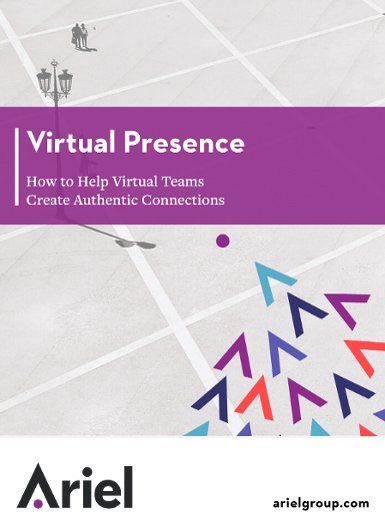7 Secrets to Becoming a Better Leader

The journey to becoming a better leader is a marathon, not a sprint.
What makes a great leader?
The answer to this question depends on who you’re asking. Some might say strategic thinking skills, getting results, or bringing out the best in the people around you. Others might point to confidence, the ability to inspire trust, or the fact that the qualities of a great leader have changed considerably over time due to modern business demands.
Bottom line—leadership means different things to different people. At Ariel, we define it as the ability to connect authentically with the hearts and minds of others in order to influence or inspire them towards a desired outcome.
Regardless of how you define leadership, here are seven actionable steps you can take today to become a better leader:
1. Look inward
All too often, leaders, teams, and even entire organizations can get stuck, searching externally for answers to their problems. The first step to sustainable change as a leader is to look inward. What repeating patterns do you notice in yourself? Do you need to work on your mindfulness? Your empathy? Your impulsivity? Your listening skills? Developing your emotional intelligence is the first step towards becoming a better leader.
2. Find your presence
As organizations become flatter and more flexible, leaders must find a way to navigate and thrive, regardless of evolving circumstances. If you want to inspire your entire organizations around strategy, then work on your presence. At Ariel, we break down this concept of necessary leadership skills into four main parts, summarized as PRES:
- Present
- Reach Out
- Expressive
- Self-Knowing
Read more about our PRES model here.
3. Hone your writing skills
In today’s global work environment, virtual communication is an everyday reality. Studies from McKinsey Global Institute show that the average person spends about 28% of their time at work managing email.
While some conversations are better left for face to face, written communication is a necessary skill for modern leaders. Quality writing drives action and productivity. Poor writing creates confusion and inaction. Consider practicing reader-centered writing to give your email communication greater impact.
4. Practice giving constructive feedback
According to a recent study, four in ten employees report feeling disengaged when they received little or no feedback about their work, and 65% said they would like more feedback. Offering regular constructive feedback creates an environment of trust, constant learning,and employee engagement—it’s an essential skill for leaders to develop. Giving critiques isn’t always easy, but skirting away from the issue will cause larger problems down the road.
5. Find your storytelling spark
“Leadership is the art of inspiring others to make a story come true.” – Andy Raskin
At Ariel, we’ve seen firsthand how storytelling can be a powerful and effective way to infuse ideas into the hearts and minds of others. Especially during times of uncertainty and change, leaders must find a way to help their team adapt to unpredictable shifts. Storytelling is a phenomenal way to quickly translate strategic imperatives into a powerful message that inspires action.
6. Define your leadership style
According to Harvard Business Review’s Seven Action Logics, there are “three types of leaders associated with below-average corporate performance (Opportunists, Diplomats, and Experts)”. Harvard Business Review goes on to say that these three leadership types are “significantly less effective at implementing organizational strategies than the 30% of the sample who measured as Achievers.” The good news? It is possible to transform your leadership style through leadership development and practice.
7. Dive in and lead
This leads us to our last point. You can read every book about leadership, but the fact remains that the only way to learn is to…well…lead. True leadership develops over a lifetime and experience-based learning with real-life context is essential. Mistakes will happen. What matters is that you continue to develop your skills and realize that the journey to becoming a better leader is a marathon, not a sprint.
Ready to develop leadership skills at your organization? See if our Leading with Presence program is a good fit for your team. Or reach out to our team with questions.
